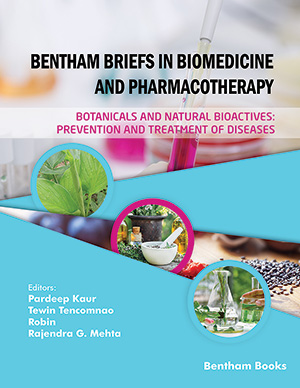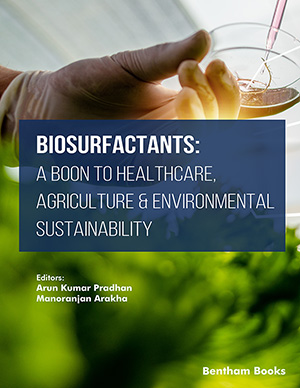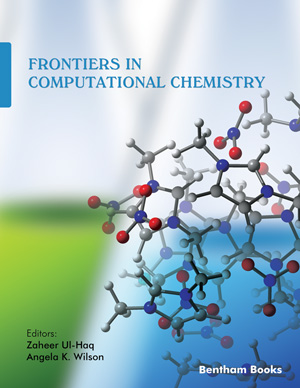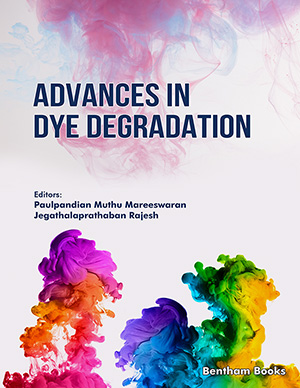Abstract
Poly(ethylene glycol) is a water-soluble polymer. Due to its high safety and biocompatibility, it has been widely used to prepare amphiphilic copolymers for drug delivery. These copolymers can enhance water-solubility of hydrophobic drugs, improve their pharmacokinetic parameters and control their release from corresponding nanocarriers formed by its self-assembly. Anticancer drugs have some shortcomings such as lower water-solubility, bad targeting and some serious side-effects, which limit their applications and are dangerous to patients. So encapsulation of anticancer drugs into nanocarriers originated from its copolymeric derivates can improve their absorption, distribution, metabolism and excretion with better release properties and activities against cancer cells, increase their therapeutic effects, and realize their passive or active target delivery through structure modification. Recent research development of its drug delivery systems for anticancer drugs will be discussed.
Keywords: Amphiphilic copolymer, anticancer drugs, delivery, nanocarrier, Poly(ethylene glycol), review.
Anti-Cancer Agents in Medicinal Chemistry
Title:Poly(Ethylene Glycol) Amphiphilic Copolymer for Anticancer Drugs Delivery
Volume: 15 Issue: 2
Author(s): Runliang Feng, Wenxia Zhu, Fangfang Teng, Na Liu, Fengying Yang, Ning Meng and Zhimei Song
Affiliation:
Keywords: Amphiphilic copolymer, anticancer drugs, delivery, nanocarrier, Poly(ethylene glycol), review.
Abstract: Poly(ethylene glycol) is a water-soluble polymer. Due to its high safety and biocompatibility, it has been widely used to prepare amphiphilic copolymers for drug delivery. These copolymers can enhance water-solubility of hydrophobic drugs, improve their pharmacokinetic parameters and control their release from corresponding nanocarriers formed by its self-assembly. Anticancer drugs have some shortcomings such as lower water-solubility, bad targeting and some serious side-effects, which limit their applications and are dangerous to patients. So encapsulation of anticancer drugs into nanocarriers originated from its copolymeric derivates can improve their absorption, distribution, metabolism and excretion with better release properties and activities against cancer cells, increase their therapeutic effects, and realize their passive or active target delivery through structure modification. Recent research development of its drug delivery systems for anticancer drugs will be discussed.
Export Options
About this article
Cite this article as:
Feng Runliang, Zhu Wenxia, Teng Fangfang, Liu Na, Yang Fengying, Meng Ning and Song Zhimei, Poly(Ethylene Glycol) Amphiphilic Copolymer for Anticancer Drugs Delivery, Anti-Cancer Agents in Medicinal Chemistry 2015; 15 (2) . https://dx.doi.org/10.2174/1871520614666141124102347
| DOI https://dx.doi.org/10.2174/1871520614666141124102347 |
Print ISSN 1871-5206 |
| Publisher Name Bentham Science Publisher |
Online ISSN 1875-5992 |
Call for Papers in Thematic Issues
Induction of cell death in cancer cells by modulating telomerase activity using small molecule drugs
Telomeres are distinctive but short stretches present at the corners of chromosomes and aid in stabilizing chromosomal makeup. Resynthesis of telomeres supported by the activity of reverse transcriptase ribonucleoprotein complex telomerase. There is no any telomerase activity in human somatic cells, but the stem cells and germ cells undergone telomerase ...read more
Role of natural compounds as anti anti-cancer agents
Cancer is considered the leading cause of worldwide mortality, accounting for nearly 10 million deaths in 2022. Cancer outcome can be improved through an appropriate screening and early detection and through an efficient clinical treatment. Chemotherapy remains an important approach in treatment o f several types of cancers, even though ...read more
Signaling and enzymatic modulators in cancer treatment
Cancer accounts for nearly 10 million deaths in 2022 and is considered the leading cause of worldwide mortality. Cancer outcome can be improved through an appropriate screening and early detection and through an efficient clinical treatment. Chemotherapy, radiotherapy and surgery are the most important approach for the treatment of several ...read more
 49
49
- Author Guidelines
- Graphical Abstracts
- Fabricating and Stating False Information
- Research Misconduct
- Post Publication Discussions and Corrections
- Publishing Ethics and Rectitude
- Increase Visibility of Your Article
- Archiving Policies
- Peer Review Workflow
- Order Your Article Before Print
- Promote Your Article
- Manuscript Transfer Facility
- Editorial Policies
- Allegations from Whistleblowers
Related Articles
-
Post-Transcriptional and Post-translational Regulation of Central Carbon Metabolic Enzymes in Cancer
Anti-Cancer Agents in Medicinal Chemistry Insights into a Critical Role of the FOXO3a-FOXM1 Axis in DNA Damage Response and Genotoxic Drug Resistance
Current Drug Targets MicroRNA-34b Inhibits Pancreatic Cancer Metastasis Through Repressing Smad3
Current Molecular Medicine Radiolabeled Probes Targeting Tyrosine-Kinase Receptors For Personalized Medicine
Current Pharmaceutical Design Inhibition of Cellular Proliferation by Drug Targeting of Cyclin-Dependent Kinases
Current Pharmaceutical Biotechnology Berberine Exerts Anti-cancer Activity by Modulating Adenosine Monophosphate- Activated Protein Kinase (AMPK) and the Phosphatidylinositol 3-Kinase/ Protein Kinase B (PI3K/AKT) Signaling Pathways
Current Pharmaceutical Design Hedgehog Target Genes: Mechanisms of Carcinogenesis Induced by Aberrant Hedgehog Signaling Activation
Current Molecular Medicine The Use of Immortalized Cell Lines in GPCR Screening: The Good, Bad and Ugly.
Combinatorial Chemistry & High Throughput Screening New Platinum and Ruthenium Complexes - the Latest Class of Potential Chemotherapeutic Drugs - a Review of Recent Developments in the Field
Mini-Reviews in Medicinal Chemistry Emerging Therapeutic Targets and Agents for Glioblastoma Migrating Cells
Anti-Cancer Agents in Medicinal Chemistry Molecular Targets of FTY720 (Fingolimod)
Current Molecular Medicine CD44 and EpCAM: Cancer-Initiating Cell Markers
Current Molecular Medicine Gefitinib Targets EGFR Dimerization and ERK1/2 Phosphorylation to Inhibit Pleural Mesothelioma Cell Proliferation
Current Cancer Drug Targets Mesenchymal Stem Cells as a Source of Dopaminergic Neurons: A Potential Cell Based Therapy for Parkinson's Disease
Current Stem Cell Research & Therapy Indoleamine 2,3-dioxygenase (IDO): Biology and Target in Cancer Immunotherapies
Current Cancer Drug Targets Effect of miR-128 in DNA Damage of HL-60 Acute Myeloid Leukemia Cells
Current Pharmaceutical Biotechnology Mechanisms of Intrinsic and Acquired Resistance to EGFR Inhibitors
Current Cancer Therapy Reviews In vivo Evaluation and Alzheimer’s Disease Treatment Outcome of siRNA Loaded Dual Targeting Drug Delivery System
Current Pharmaceutical Biotechnology Receptor Tyrosine Kinases Take a Direct Route to Mitochondria: An Overview
Current Protein & Peptide Science The Role of CXC-Chemokine IL-8, IL-6 and CXCR2 Receptor in Lymphoplasmacytic Lymphoma: Correlations with Microvascular Characteristics and Clinical Features
Current Angiogenesis (Discontinued)



























